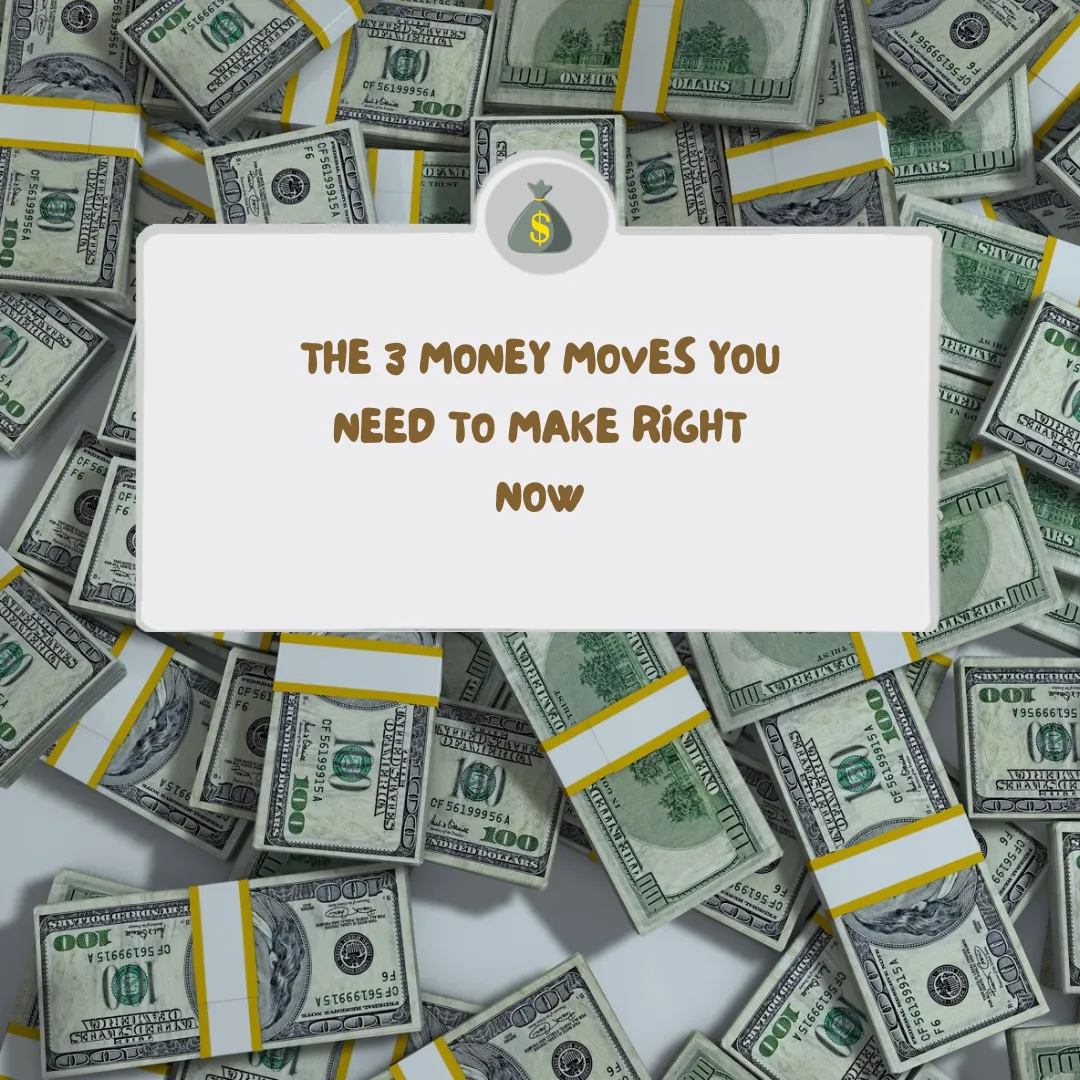
The 3 Money Moves You Need to Make Right Now
“Compound interest is the eighth wonder of the world. He who understands it, earns it … he who doesn't … pays it." - Albert Einstein
I've been talking to a lot of you lately and your biggest question is "HOWWWWW????". How do you actually “do” money "right"? It's a valid struggle because we don't learn financial literacy in school and often no one teaches us the basics. Things like contributing to your 401K, learning saving and budgeting - it's like speaking a new language!
The jargon is so heavy. If you don't already know what a 401K is, it's not abundantly clear what it means. And once you do understand the terms, it's really about setting healthy habits in place. But one of the biggest myths is that only rich people can invest. As Vivian Tu says in her book "Rich AF: The Winning Money Mindset That Will Change Your Life", "How do you think those rich people got rich in the first place? They were investing! It's not something you wait to do later, it's how you get there."
Vivian jokes that investing is the only way a single person can be a two-household income, because not only are you working hard for your money, your money is working hard for you. It's like having a great spouse who also brings in money and helps support the family of one, without having to actually go out and date and find that person. It allows you to make money while you sleep. As humans, we can only work so many hours a day. We are made of flesh and bones. Our brains do give out after a certain point. Your money is a better use, so the faster you can get to your money, making you more money versus your body or your brain making you more money, the better.

So here are the 3 steps to actually "do" money 👊
1. Start an emergency fund
It's really shitty that the number one reason for bankruptcy in this country is medical debt. You don't choose to get sick, but it's important to have an emergency fund in case the wheel falls off your car or your roof caves in. You don't want to go into mountains of debt just because you couldn't afford that. For single people, 3 to 6 months of living expenses is good. If you are a head of household with a mortgage and more fixed costs, 6 to 12 months is probably a better bet.
2. Tackle your debt
Use the debt snowball method. Not all debt is created equal. Dave Ramsey's debt snowball method focuses on paying off your debts from smallest to largest balance, regardless of interest rate. Here's how it works:
List your debts from smallest to largest balance
Make minimum payments on everything except the smallest debt
Throw all extra money at the smallest debt until it's paid off
Once the first debt is gone, roll that payment to the next debt
Repeat until all debts are paid off
This method provides quick wins and momentum to keep you motivated. Even if a debt has a higher interest rate, the psychological boost of paying off a balance can be powerful.
3. Invest early and often
Put away a dollar to $5, $10 every month and set it up on an automatic direct deposit from your paycheck to your brokerage. There are so many brokerages that allow you to automatically allocate your dollars. If you're saving and investing for a specific goal, a target date retirement fund might make sense. Time in the market beats timing the market or picking the perfect investment every single time.
However, be cautious of brokers or advisors who charge high fees. Look for a flat-fee advisor who can provide objective guidance without profiting from commissions. High fees can eat away at your returns over time, so it's important to keep an eye on what you're paying. With that being said, you should have a trusted advisor because most of us, me included, aren’t experts at investing in stocks.
I personally love investing in real estate, but that has a host of challenges and risks to be discussed in another article. The point here is, invest because compound interest is the key to growing your money. It works by earning interest on your initial investment, and then earning interest on that interest in subsequent periods.
For example, if you invest $1,000 at a 5% annual interest rate, after the first year you'll have $1,050 (the original $1,000 plus $50 in interest). In the second year, you'll earn 5% on the new balance of $1,050, giving you $1,102.50. Over time, the compounding effect accelerates the growth of your investment.
The more frequently interest compounds (daily, monthly, quarterly, etc.), the faster your money grows. Investing early and regularly is crucial to take full advantage of compounding. Even small amounts invested consistently can turn into substantial sums thanks to the power of compounding over many years.
For me, money is about having options in my life. It's power, agency, being able to buy that expensive sweater without double checking your bank account. It's being able to leave a bad boss, relationship or business. Money gives you choices and the ability to live the life you want without fear.
So I encourage you to want money, to want wealth and richness in your life. It gets you out of bad situations and lets you choose exactly how you're going to live and what a happily ever after means to you. The steps are there, you just have to take action. Break it down, reverse engineer, and start making progress. You've got this!
Legal Disclaimer: This content is not financial advice and is for informational purposes only. Always consult with a qualified financial professional before making any financial decisions.
